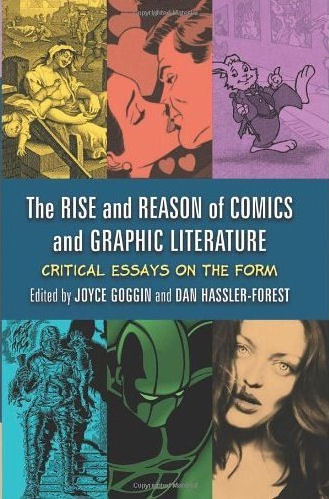As the second thematic section of my work-in-progress post-election film studies syllabus, I have selected a few films that engage with the ongoing commercialization of media. Already a huge problem for the democratic process in all capitalist countries, the growing involvement of capital in journalism and the news media proved to be especially lethal when a sociopathic reality TV star decided to run for president. Trump’s outrageous campaign rallies were far more entertaining than any other political speeches, and there’s no telling how strongly the constant exposure he received from cable news outlets like CNN contributed to his popularity. And when these networks finally tried to pull a “sorry not sorry,” the momentum had been established, the genie was out of the bottle, and the advertisers’ money was in the bank.
Commercializing Media
Network (Sidney Lumet, 1976)
Still the go-to satire of commercialization’s profound impact on news media, Paddy Chayefsky’s unfortunately also features some uncomfortable sexual politics: Faye Dunaway’s character personifies the cold, calculating, and somehow irresistible appeal of universal commercialization, while the patronizing “old guard” is identified in aging Hollywood actors William Holden and Peter Finch. Criticized for being too outrageous at the time, the film’s depiction of the effects of total commercialization on media content seems fairly in the age of Reality TV. At the same time, the appeal of Howard Beale’s populist mantra “I’m as mad as hell, and I’m not going to take this anymore!” resonates even more strongly in the age of white male rage.
Broadcast News (James L. Brooks, 1987)
Where Network mines the commercialization of television production for increasingly broad satire, James L. Brooks’ poignant comedy-drama condemns the hollowing out of television journalism by looking at it through a microscope: his insiders’ view of TV production, from editing room panics to the infrastructural complexity of live newscasting, documents the shift from in-depth but “unsexy” investigative journalism to the easily-consumed reassurance of sensationalistic “human interest” reporting. While the film uses its three main character to set up its main allegory of television in transition, it does so without reducing any of them to mouthpieces for any particular agenda. It is, in fact, the one film that is about ethics in journalism.
Anchorman 2: The Legend Continues (Adam McKay, 2013)
A deeply silly and self-indulgent sequel to an already-silly and indulgent cult hit, Anchorman 2 somehow finds its legs when it goes after the emergence of cable news and the concept of the 24-hour news cycle. Director Adam McKay and his cast refuse to pull any punches while “documenting” what happened to American TV news in the 1980s, and while there is a certain irony to the idea that this kind of lowbrow comedy has clearly flourished in this age of thoroughly commercial media, Anchorman 2 somehow manages to reflect critically on itself and its media-industrial context while educating its audience at least a little bit on media history.
The King of Comedy (Martin Scorsese, 1982)
One of Martin Scorsese’s most consistently underrated and overlooked masterpieces is a stunningly bleak portrait of toxic celebrity culture. Robert de Niro’s Rupert Pupkin is a dangerous sociopath not because he is driven by trauma or hateful ideology: he has clearly been spoon-fed a culture that celebrates and glorifies celebrity to the point that nothing else seems to matter. Pupkin will do or say anything to achieve the fame and adulation he sees as the only valid indication of human worth – and like the white male rage that fuels the alt-right movement, his sense of entitlement knows no boundaries.
The Running Man (Paul Michael Glaser, 1987)
An unassuming genre film that’s primarily a painting-by-numbers Schwarzenegger vehicle, complete with the cheesiest one-liners imaginable. But it’s also a fascinating precursor to dystopian franchises like The Hunger Games, with its gruesome gladiatorial combat staged as mass entertainment that also functions as a direct extension of state power. It’s a superficial and fairly flimsy satire, but also one that is unburdened by pretension or heavy-handed symbolism: the matter-of-factness with which a fascist America would thrive on sensational and “fun” death-matches between inmates makes it all the more convincing.
Gremlins 2: The New Batch (Joe Dante, 1990)
Director Joe Dante’s doesn’t just belong on this list because it is set in a thinly-veiled parody of Trump tower, presided over by the deeply-ridiculous and dangerously inept egomaniac “Daniel Clamp.” But beyond its (fairly toothless) needling of New York City’s least popular billionaire, Gremlins 2 works primarily as a deconstruction of Hollywood’s overwhelming commercial imperatives. Arriving at the end of the first decade of blockbuster-heavy “sequelitis” in the movie industry, Dante lets rip with a sequel determined to subvert every expectation fans of the original Gremlins might have.
The LEGO™ Movie (Chris Miller and Phil Lord, 2014)
Another film with a thinly-veiled spoof of Donald Trump, appearing here as dictatorial “President of the World” and CEO Lord Business. While the film’s opening has been praised for its playful critique of ideological power, the film also obviously represents the end-point of media commercialization: a 100-minute commercial for a global toy brand that simultaneously promotes (with knowing irony, of course) a wide variety of entertainment franchises. And while the film is often clever in its unrelenting barrage of metatextual irony, it is also telling that the screenplay ultimately descends into blatant sexism, while the evil capitalist overlord is –bizarrely– redeemed as a caring father figure who only really needed some down time with his favorite son.







Pingback: Monday Morning Links! | Gerry Canavan
Pingback: Trump Media: A Film Studies Syllabus (V) | Dr. Dan’s Medicine